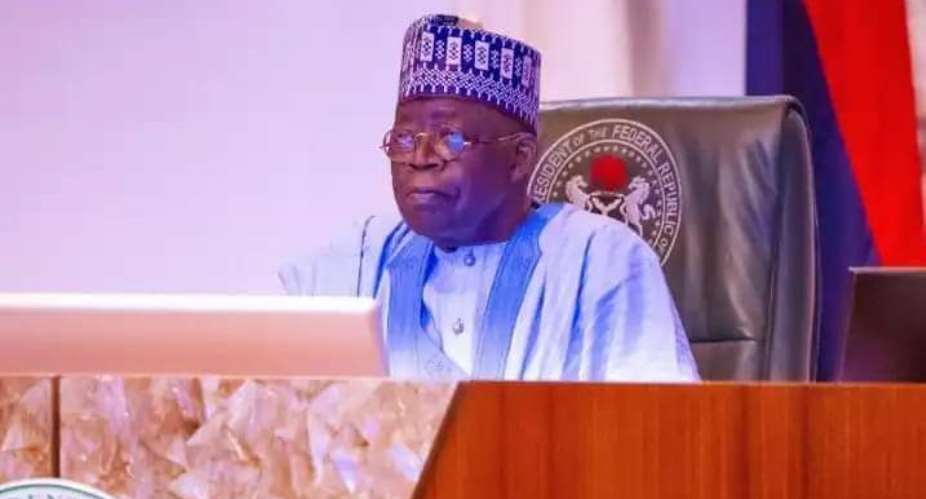Yesterday, the coordinating Minister of the economy Mr Wale Edun hinted that Nigeria will take a $2.2 loan from the World Bank. The loan according to the Minister attracts only 1% interest rate and described it as favourable. The World Bank has been Nigeria's friend in terms of loans as part of the neo colonial hangover and perpetual slavery because they are dead weight in nature.
Nigeria has secured a series of loans from the World Bank to support various sectors and initiatives aimed at fostering economic growth. The loans, totaling billions of dollars, are expected to have far-reaching implications for Nigeria's economic development in the coming years.
One of the key areas that the World Bank loans seeks to address is infrastructure development. With a large portion of the funds allocated to improving roads, bridges, and utilities, Nigeria aims to enhance its transportation network and basic services, which is crucial for boosting productivity and attracting investment.
The loans will support efforts to diversify Nigeria's economy beyond its heavy dependence on oil. By investing in agriculture, manufacturing, and other non-oil sectors, Nigeria seeks to reduce its vulnerability to fluctuations in global oil prices and create more sustainable sources of growth and employment.
A vital component of the World Bank loans is the focus on human capital development. Funds will be allocated to improving education and healthcare systems, as well as skills training programs, to enhance the country's workforce readiness and competitiveness in the global economy.
Also, the World Bank loans are expected to help address social problems such as poverty, inequality, and unemployment, by supporting social protection programs and initiatives to improve living standards and access to basic services for underserved populations.
Many people have expressed concerns about the implications of Nigeria's increasing debt burden due to the accumulation of external loans. The World Bank loans may put pressure on the country's fiscal position and raise questions about debt sustainability, especially in the context of uncertain global economic conditions.
There are deep concerns about the transparency and accountability of the loan utilization process, as corruption and mismanagement have plagued past infrastructure projects in Nigeria. It will be crucial for the government to ensure that the funds are used efficiently and effectively to achieve the intended development outcomes.
The challenges and risks associated with external borrowing, many experts believe that the World Bank loans offer a valuable opportunity for Nigeria to accelerate its economic transformation and achieve sustainable growth. The investments in infrastructure, human capital, and social development have the potential to unlock new opportunities and enhance Nigeria's long-term prosperity.
If President Tinubu is determined to make judicious use of the loans and deploy it to implement sound economic policies, strengthen institutional capacity, and improve governance practices, it will be worthwhile. To maximize the benefits of the World Bank loans, government must ensure that they contribute to inclusive and sustainable growth for all citizens.
Nigeria's World Bank loans present both opportunities and challenges for the country's economic development. By leveraging the funds strategically, addressing governance issues, and fostering a conducive environment for investment and innovation, Nigeria can harness the potential of the loans to drive economic growth, create jobs, and improve the well-being of its people in the years to come.
President Tinubu will be reneging on his promise to Nigerians if he fails to deploy the loans to areas of critical national concern. Nigeria is already a victim of China's debt trap diplomacy. We shall be sinking deeper in the miasma of debtocracy and this trajectory is the rugged path to the slippery slope.
John Idumange writes from Port Harcourt





 Ejisu by-election: Police questions Kwadaso MP, two others over bribery allegati...
Ejisu by-election: Police questions Kwadaso MP, two others over bribery allegati...
 Nana Kwame Bediako is Nkrumah’s reincarnate; he’ll be president if he appoints N...
Nana Kwame Bediako is Nkrumah’s reincarnate; he’ll be president if he appoints N...
 Dumsor: Mahama gave us ‘dum, dum, dum’ but we are now in the era of ‘dum sie sie...
Dumsor: Mahama gave us ‘dum, dum, dum’ but we are now in the era of ‘dum sie sie...
 You have no right to demand KPMG report on SML deal; it’s a written bonafide of ...
You have no right to demand KPMG report on SML deal; it’s a written bonafide of ...
 Bawumia is like a chew-and-pour classmate; he crumbles when given practicals — B...
Bawumia is like a chew-and-pour classmate; he crumbles when given practicals — B...
 Dumsor: We're almost seeing the end of it — Sammi Awuku
Dumsor: We're almost seeing the end of it — Sammi Awuku
 I’ll kneel down on TV and apologize to Mahama; he’s an angel compared to Akufo-A...
I’ll kneel down on TV and apologize to Mahama; he’s an angel compared to Akufo-A...
 Government’s communication on cocaine scandal has been an unmitigated disaster –...
Government’s communication on cocaine scandal has been an unmitigated disaster –...
 FDA uncovers expired food items from storerooms of Zuarungu SHS
FDA uncovers expired food items from storerooms of Zuarungu SHS
 I’ll make small-scale miners millionaires – Bawumia
I’ll make small-scale miners millionaires – Bawumia
